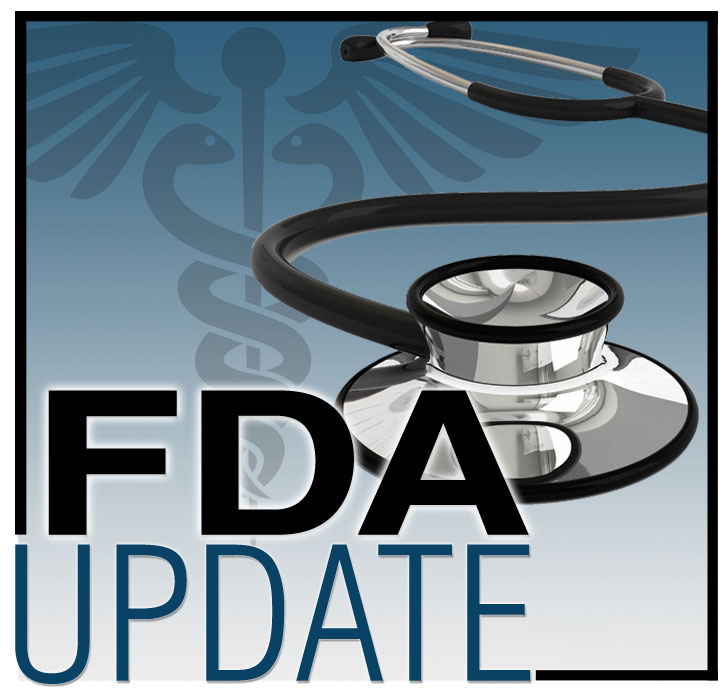FDA Expands Regorafenib Indications for Patients with HCC

On April 27, 2017, the U.S. Food and Drug Administration (FDA) expanded the indications of regorafenib to include the treatment of patients with hepatocellular carcinoma (HCC) who have been previously treated with sorafenib.
Approval was based on an international, multicenter, randomized, double-blind, placebo-controlled trial of 573 patients with Child-Pugh A and Barcelona Clinic Liver Cancer Stage B or C HCC with documented disease progression following sorafenib. Patients were randomly allocated to receive regorafenib160 mg orally once daily plus best supportive care (BSC) or matching placebo plus BSC for the first 21 days of each 28-day cycle. Treatment continued until disease progression or unacceptable toxicity. The trial demonstrated a significant improvement in overall survival (HR=0.63, 95% CI: 0.50, 0.79, p<0.0001) with an estimated median overall survival for patients in the regorafenib arm of 10.6 months and 7.8 months for patients in the placebo arm. A statistically significant improvement was also demonstrated for progression-free survival (PFS) based on modified RECIST for HCC (HR=0.46, 95% CI: 0.37, 0.56, p<0.0001), with an estimated median PFS of 3.1 and 1.5 months in the regorafenib and placebo arms, respectively. The overall response rate, based on modified RECIST, was 11% in the regorafenib arm and 4% in the placebo arm.
The safety of regorafenib was evaluated in 1142 patients enrolled in randomized, placebo-controlled trials. The most common adverse reactions observed in 20% or more of patients taking regorafenib were pain, hand-foot skin reaction, asthenia/fatigue, diarrhea, decreased appetite, hypertension, infection, dysphonia, elevated bilirubin, fever, mucositis, weight loss, rash, and nausea.
The recommended regorafenib dose is 160 mg (four 40 mg tablets) taken orally once daily after a low-fat meal for the first 21 days of each 28-day cycle.
Full prescribing information is available (https://www.accessdata.fda.gov/drugsatfda_docs/label/2017/203085s007lbl.pdf).
FDA granted this application priority review and Orphan Drug Designation. A description of FDA expedited programs is in the Guidance for Industry: Expedited Programs for Serious Conditions-Drugs and Biologics (http://www.fda.gov/downloads/drugs/guidancecomplianceregulatoryinformation/guidances/ucm358301.pdf).
Healthcare professionals should report all serious adverse events suspected to be associated with the use of any medicine and device to FDA’s MedWatch Reporting System by completing a form online (http://www.fda.gov/medwatch/report.htm), by faxing (1-800-FDA-0178) or mailing the postage-paid address form provided online, or by telephone (1-800-FDA-1088).
In collaboration with the FDA and as a service to our members, ONS provides updates on recent FDA approvals and other important FDA actions (e.g., updated safety information, new prescribing information) pertaining to therapies for patients with cancer. This allows the agency to inform oncologists and professionals in oncology-related fields in a timely manner. Included in the FDA updates is a link to the product label or to other sites for additional relevant clinical information. In supplying this information, ONS does not endorse any product or therapy and does not take any position on the safety or efficacy of the product or therapy described.
